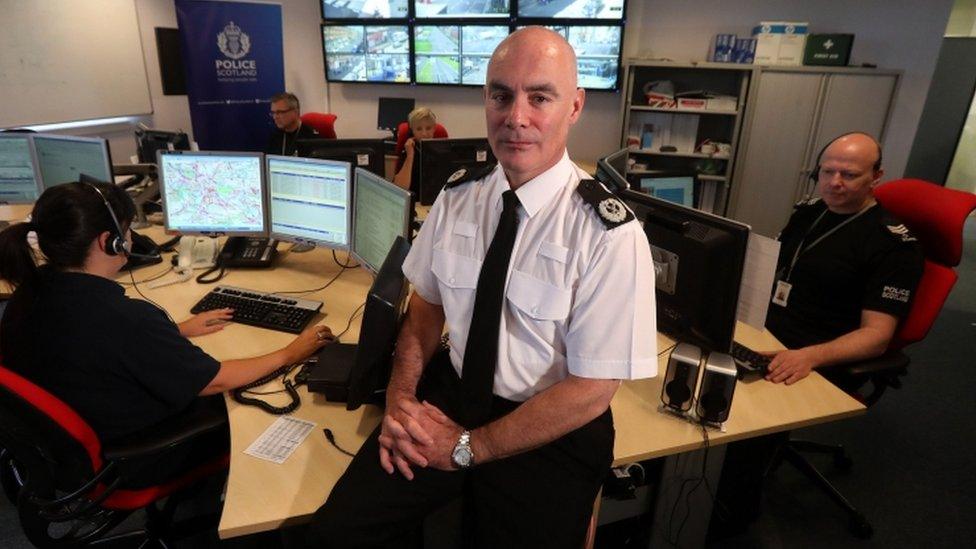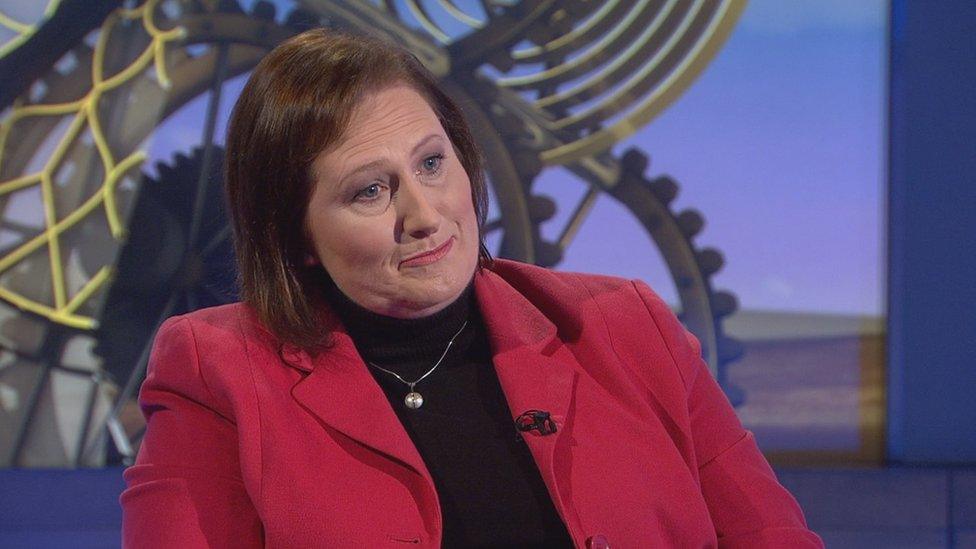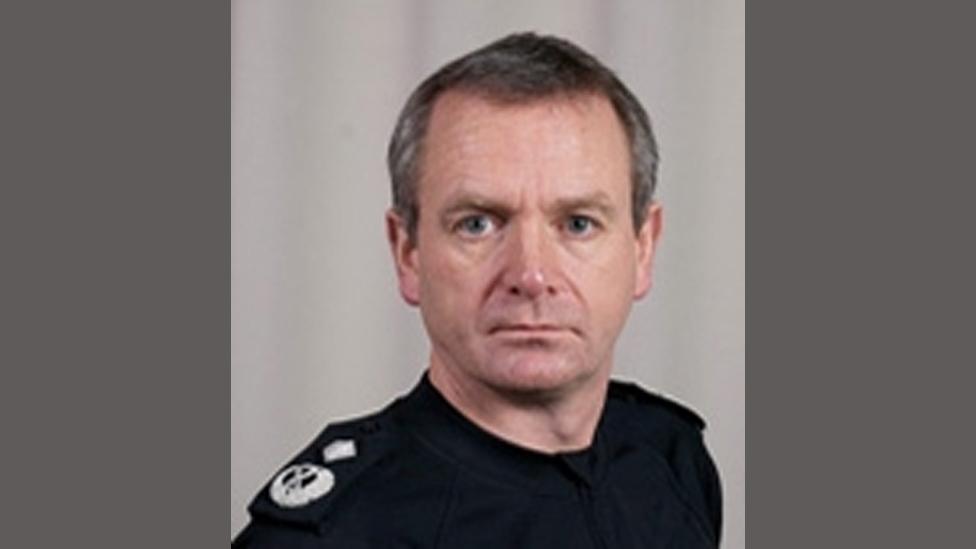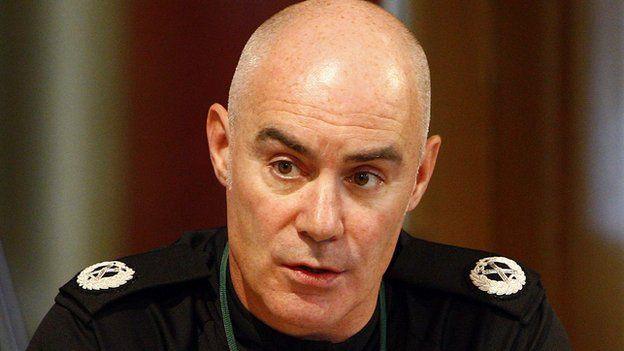Watchdog slams Scottish Police Authority's complaints procedure
- Published

A police watchdog has criticised the way complaints are handled against senior officers
A police watchdog has released a damning report on the Scottish Police Authority's complaints handling system.
The Police Investigations and Review Commissioner (Pirc) examined how complaints against senior police officers, SPA staff and its board were dealt with.
The audit questioned the number of complaints which were investigated.
The new chairwoman of the SPA, Susan Deacon, acknowledged the complaints system needed to be "robust".
The report - which covers the period between April 2015 and March 2017 - also found a lack of transparency on decisions made and criticised the length of the process.
It did not include recent allegations made against high ranking officers within Police Scotland.
Chief Constable Phil Gormley is currently on a "leave of absence" amid investigations into allegations of bullying which he denies.
Assistant Chief Constable Bernard Higgins was suspended by the SPA in November.

ACC Bernard Higgins was suspended alongside three other officers

Five complaints have been made about the conduct of Chief Constable Phil Gormley, who is on special leave
Three other officers were suspended at the same time and two have been placed on restricted duties.
This is the third audit of their complaints procedures since the SPA was established in 2013.
Commissioner Kate Frame said: "The audit has highlighted a number of deficiencies within the SPA's current complaint handling practices."
Her findings included:
Decisions on complaints were made which lacked clarity and transparency and in many cases there was insufficient explanation to demonstrate how the decision was reached.
The average time taken by the SPA to conclude complaints was excessive and disproportionate
The emphasis placed on members of the public to produce evidence in support of their complaint was not appropriate
The SPA needs to put in place guidance on how to handle "whistleblowing"
The audit found the SPA's internal guidance document for handling complaints was difficult to follow, without clear timescales and instructions on how to progress different types of complaints.
'Maintain public confidence'
It found that in many of the complaints against senior officers, there was not sufficient information about what evidence had been gathered and how a final decision was reached.
None of the 16 "relevant" complaints about senior officers were upheld by the SPA during the period of the audit.

Susan Deacon is chair of the Scottish Police Authority
The audit also assessed that the SPA received 14 complaints about senior officers during the period, which should have been progressed as potential misconduct allegations.
Only seven of these cases were referred to the SPA's Complaints and Conduct Committee for assessment and of those seven, the committee agreed that only one - if proved - would amount to misconduct or gross misconduct.
The Pirc report has made several recommendations. They include;
amending its guidance document
establishing a panel to make preliminary assessments
remove the burden of proof
and to clearly define the procedure for a final response to a complaint.
Ms Deacon, who took over the headship of the SPA at the beginning f December, said: "This latest PIRC report raises a number of important areas for the SPA's attention, some of which have already been dealt with or are in progress.
"Going forward, I believe it is essential that the SPA work together with other organisations with a role and interest in complaint handling, to ensure that our systems and practices are robust and work effectively to maintain public confidence and trust in policing."
- Published28 November 2017

- Published10 November 2017

- Published25 November 2017
